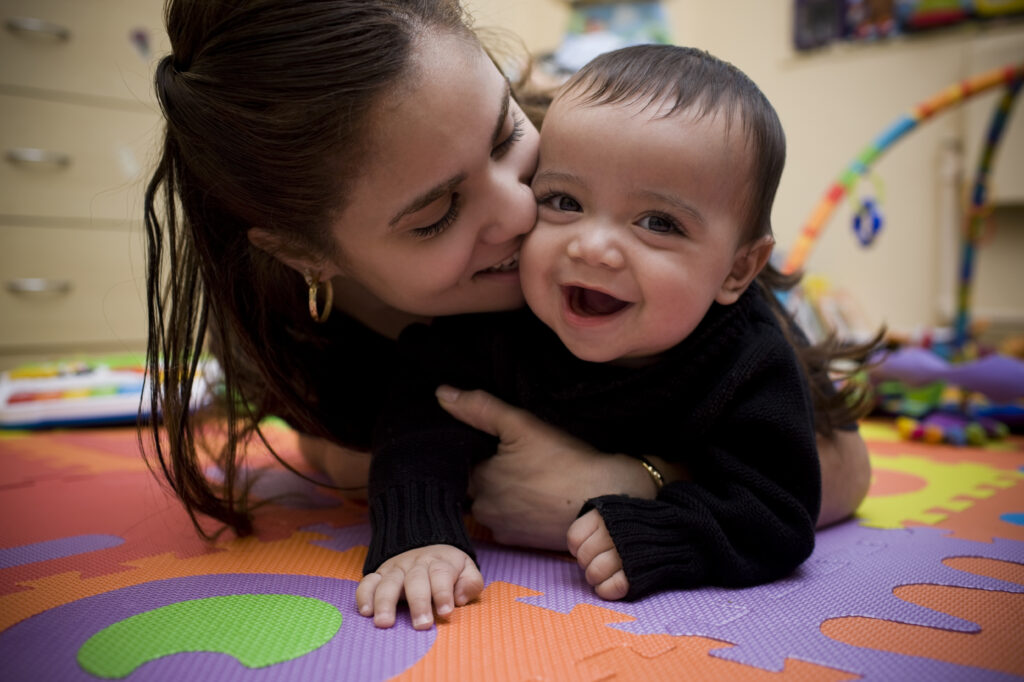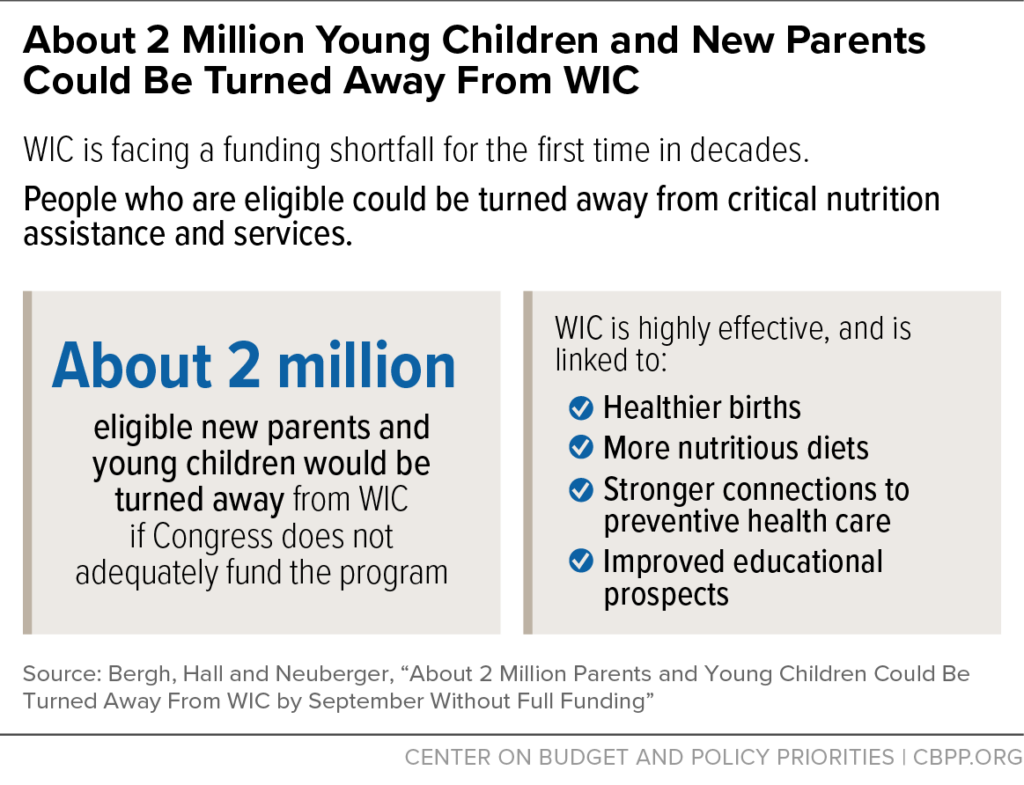Stronger
& Healthier Families
WIC has played a pivotal role in providing nutrition assistance to people with low incomes for over 45 years, and it now serves nearly 7 million pregnant and postpartum participants, infants, and children up to age 5. The program contributes to healthier births, less food insecurity, more nutritious diets, better health care for children, and higher academic achievement for students. But this vital assistance is at risk.






